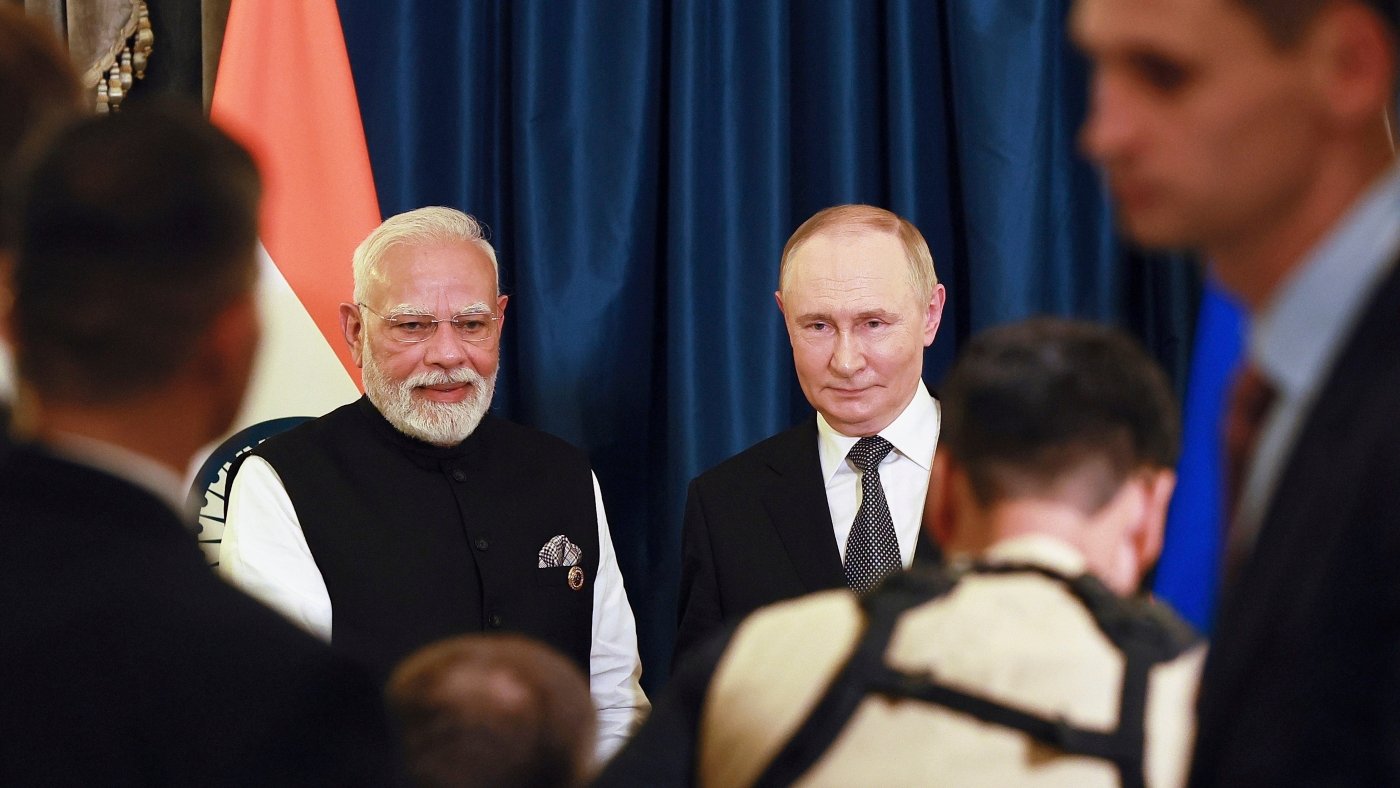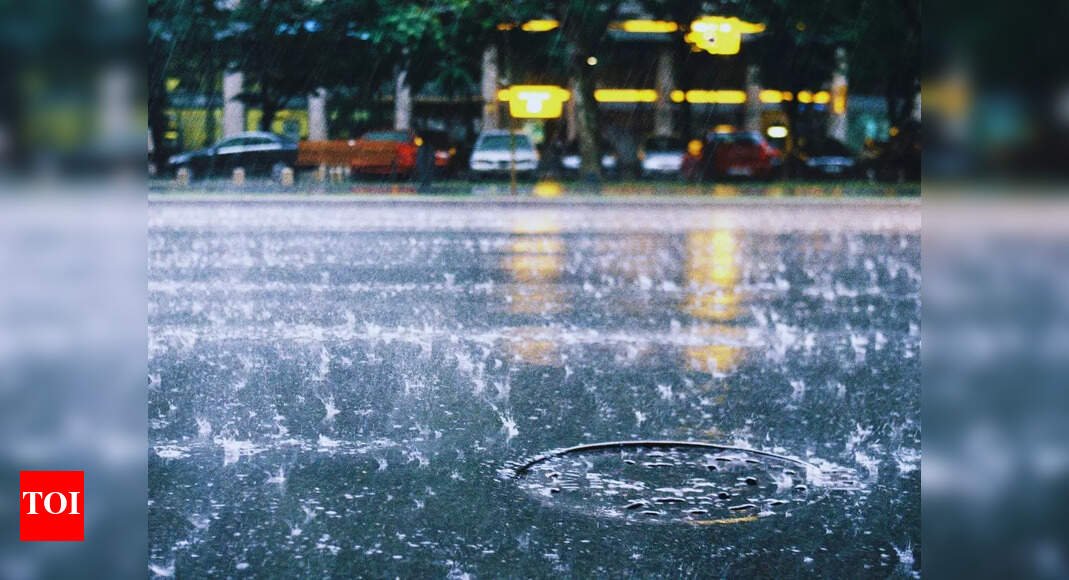Travel Guides & Articles
India’s ₹18,000-Crore Luggage Industry To Grow 5-7% Due To Rising Leisure, Corporate Travel

New Delhi: India’s Rs 18,000-crore luggage industry is projected to grow 5-7 per cent in FY26, an increase from a 3 per cent CAGR over the past three years, a report said on Monday.The robust growth is owed to rising leisure and corporate travel and increased demand for hard luggage, according to a report by Crisil Ratings.
Within this segment, new-age manufacturers will capture 25 per cent market share after growing approximately 20 per cent, outbeating larger legacy ones, who will grow in single digits, according to the rating agency.The growth this fiscal will be driven by the organised segment, which enjoys a 45 per cent market share, the report added.
New-age manufacturers will increase their share to 25 per cent of the market due to fast-moving, contemporary and stylish designs across segments catering to the aspirational class, and e-commerce expansion.
Further, analysts said that low-cost private label-based production, controlled overheads and wider reach through distribution across e-commerce will aid new-age luggage makers.”We see new-age makers increasing their market share to 25 per cent in the organised segment this fiscal – doubling over the last two fiscals, even as legacy players continue to invest in online channels to augment their offline market presence,” said Rahul Guha, Senior Director, Crisil Ratings.
Operating margins will improve 150-200 basis points (bps) to 9.5-10.0 per cent this fiscal year, backed by rationalisation of raw material prices and liquidation of lower-margin inventory with the legacy manufacturers.
Margins of large players had declined by more than a third year-on-year to 8 per cent last fiscal because of significant pricing pressure from new-age rivals.Besides durability, urban consumers focus on aesthetics, design and utility, while the rural ones are slowly shifting from traditional soft to the more aspirational hard luggage, the report noted.
Disclaimer: This story is from the syndicated feed. Nothing has changed except the headline.
Travel Guides & Articles
Modi and Putin affirm special relationship as India faces steep US tariffs over Russian oil imports : NPR

Indian Prime Minister Narendra Modi, left, and Russian President Vladimir Putin pose during their meeting on the sidelines of the Shanghai Cooperation Organization (SCO) summit in Tianjin, China, Monday, Sept. 1, 2025.
Vladimir Smirnov/AP/Pool Sputnik Kremlin
hide caption
toggle caption
Vladimir Smirnov/AP/Pool Sputnik Kremlin
TIANJIN, China — Indian Prime Minister Narendra Modi and Russian President Vladimir Putin met on the sidelines of a regional summit in China on Monday in a show of deepening ties when New Delhi’s relations with Washington are strained over the purchase of Russian oil.
The two leaders held talks after attending the key session of the Shanghai Cooperation Organization gathering in the port city of Tianjin, where discussions focused on regional stability, bilateral trade and energy cooperation.
In his remarks to open the talks, Modi termed the partnership with Moscow as “special and privileged.” Putin addressed Modi as a “dear friend” and hailed Russia’s ties with India as special, friendly and trusting.
“Russia and India have maintained special relations for decades. Friendly, trusting. This is the foundation for the development of our relations in the future,” Putin said.
Putin plans to travel to India in December for the 23rd India-Russia annual summit, according to his foreign affairs adviser, Yuri Ushakov.
Relationships on display
Modi used the SCO meeting to welcome the initiatives aimed at halting the conflict between Russia and Ukraine and called on the stakeholders to move forward constructively.
“To end the conflict soonest and establish peace permanently, we need to find out a way. It’s a call of the entire humanity,” Modi said.
Putin was accompanied by a large delegation that included top government officials. Russian state media reported that before sitting down for their formal meeting, Putin and Modi spoke one-on-one for almost an hour in a Russian-made limousine that Putin regularly takes on foreign trips.
Moments before the leaders lined up for a group photo, Modi was seen clasping Putin’s hand with the gusto of an old friend, bursting into his trademark hearty laughter. The moment was infectious as Putin grinned and chuckled, while Chinese President Xi Jinping gave a measured smile. The trio, ringed by watchful interlocuters, chatted animatedly for a few seconds.
Modi met Xi ahead of the opening of the summit Sunday and the two leaders pledged to resolve their border differences and bolster cooperation.
Washington pushing together China, Russia and India
Monday’s bilateral meeting between Modi and Putin carried added significance by coming days after U.S. President Donald Trump imposed an additional 25% tariffs on Indian imports, raising the total duties to a steep 50%, in retaliation for India’s continued purchases of discounted Russian oil.
Washington has repeatedly warned New Delhi against buying Russian crude, which it said was partly keeping Moscow’s revenues afloat to fund the Ukraine war. India has defended its imports as essential for meeting the growing energy needs of its 1.4 billion people.
Analysts said Trump’s steep tariffs and the tone coming from the White House have pushed New Delhi closer to China and Russia.
“While India-China reengagements started much before Trump, his policies are accelerating a process whereby India seems to be working much more closely with China and Russia to push back against economic unilateralism it is witnessing from the U.S.,” said Harsh Pant, vice president of foreign policy at New Delhi based think tank the Observer Research Foundation.
Modi travelled to Russia twice last year. The first was a visit to Moscow for talks with Putin in July, which was his first trip to Russia since the full-scale invasion of Ukraine by the Kremlin’s forces in February 2022. He then traveled to Kazan in October for the summit of the BRICS bloc of developing economies.
Trump’s reaction
As Xi, Putin and Modi showed extraordinary unity, Trump on Monday continued to jab at New Delhi.
As the summit wrapped up, Trump charged in a social media post that historically the U.S.-India trade relationship “has been a totally one sided disaster!” Trump also bristled about India surging its Russian oil purchases and signaled no trade deal with New Delhi is in sight.
“They have now offered to cut their Tariffs to nothing, but it’s getting late,” Trump said in the posting on his Truth Social platform. “They should have done so years ago. Just some simple facts for people to ponder!!!”
SCO nations share a history of business partnerships
Russia has had strong ties with India since the Cold War, and New Delhi’s importance as a key trading partner has grown since the war between Moscow and Ukraine.
China and India have become key buyers of Russian oil after the West shunned Russian exports to punish Moscow.
India historically bought most of its crude from the Middle East, but the world’s third-largest crude importer after China and the U.S. has started buying Russian oil available at discounted rates. Russia now accounts for around 37% of India’s total oil imports, according to analysts and Indian officials.
Trade between India and Russia has sharply increased in recent years, reaching a record $68.7 billion in the 2024-25 financial year. Imports from Russia reached around $64 billion and exports from India totaled about $5 billion, according to Indian government data.
The two nations aspire to bolster trade to $100 billion by 2030.
Modi’s meeting with Putin underscored New Delhi’s stance that India prized its old and reliable strategic partners and has sufficient strategic autonomy in its foreign policy to maintain and strengthen its multi-dimensional partnership, said Sreeram Sundar Chaulia, an international affairs expert at New Delhi’s Jindal School of International Affairs.
At the same time, the Indian government hopes the present rough weather between India and the U.S. is a temporary aberration, Chaulia said.
“Then, India can return happily to having the Russian cake and eating the American pie as part of its multi-alignment strategy,” Chaulia said.
Travel Guides & Articles
Fatehpur Sikri, India, travel guide: Seven highlights to see

Seven wonders within Fatehpur Sikri, India
This monumental Mughal capital 37 kilometres outside Agra was founded in 1571 but lasted scant decades. The magnificently mournful ruins are one of India’s most underrated sights.
1 Make a grand entrance through Victory Gateway
As you lurch out of Agra, dodging cars and camel carts, your first sight of this ruined city is an immense hilltop gateway, one of the world’s biggest, wobbling like a mirage in the heat. Victory Gateway was built in 1602 from red sandstone and white marble to commemorate Emperor Akbar’s military triumphs, although its Persian inscription warns the world doesn’t last. This by itself qualifies as a mighty monument, and the views are splendid.
2 Pause in admiration inside the mosque
Step through the gateway into the courtyard of the Friday Mosque and you get the first impact of this tremendous ensemble. Everything is built of red sandstone, everything outsized, and yet the decorative detail – window frames, balconies, roof brackets – wonderfully carved. The mosque is one of India’s finest and largest and centres on the tomb of a Sufi, inlaid with mother-of-pearl. Local women come to tie strings on the marble lattice in hope of being granted children.
3 Check out the architecture in the Audience Hall
This gloriously startling building in the royal quarter is where Akbar consulted advisers. The Diwan-i-Khas has wall recesses that served as bookshelves for royal documents and texts. However, your eyes will surely be on the enormous and wildly ornate octagonal pillar of the main hall, which rises from the centre of the room like the handle of an umbrella and props up an elevated walkway that resembles the balcony in an opera house.
4 Look up in the Imperial Treasury
Fatehpur Sikri shows wide Hindu, Islamic and Persian influences but this genius building next to the Audience Hall takes inspiration from Jain temple architecture and decorative sculpture. Stone safes are concealed in the walls, but gaze up: the brackets that hold up the ceiling are embellished with mythical elephant-headed sea monsters, said to guard treasures in the depths of the ocean. In the fields behind, don’t miss the odd-looking spiky tower erected in memory of Akbar’s beloved elephant Hiran.
5 Enjoy the faded frescoes in Mariam’s House
The harem complex has several fine pavilions, some showing Turkish influences and others covered with depictions of swans and horses. The carvings and fretwork are so fine in places you could mistake sandstone for wood. If you’re pressed for time, head straight to Mariam’s House, perhaps the best example. As a bonus, it has bright and sometimes surreal gold-tinted frescoes – look out for the diaphanous woman riding a gigantic parrot.
6 Wander through the other imperial quarters
This is the most impressive part of Fatehpur Sikri, erupting in columns, latticed screens and elaborately decorated architectural elements, and graced with ornamental pools and clipped gardens. Persian verses loop across the emperor’s bedroom or House of Dreams, although judging from his innumerable concubines Akbar spent scant time on sleep. The pool below the elevated kiosk cooled the bedchamber. This is just one of numerous buildings that might take an hour or two to admire.
7 Close your guidebook and get lost
Fatehpur Sikri was planned in the smallest detail: servants’ quarters, lavatory blocks, fountain drainage, masonry rings to hold silk canopies for courtyard shading. Take time to inspect the detail and soak up the melancholy magnificence away from the main visitor axis. Birds wheel overhead and squirrels sun themselves on walls. In the late afternoon the sandstone turns crimson, then orange and subtle pink before the light fades on this abandoned city of lost dreams.
The writer travelled as a guest of Incredible India incredibleindia.gov.in and Malaysia Airlines malaysiaairlines.com
Sign up for the Traveller Deals newsletter
Get exclusive travel deals delivered straight to your inbox. Sign up now.
Traveller Guides
From our partners
Travel Guides & Articles
Heavy rain alert in Delhi–Gurugram: IMD issues an orange alert; travel and safety advisory |

In a recent update, Delhi and its surrounding NCR cities, including Gurugram, Noida, and Faridabad, have received intense rainfall. The India Meteorological Department (IMD) has issued an orange alert for Delhi while a warning of very heavy rainfall and thunderstorms has been issued for Gurugram.Keeping the current situation in view, the District Disaster Management Authority has issued a travel advisory for Gurugram for 2nd September 2025. It reads:On September 1, 2025, Gurugram recorded over 100 mm of rainfall between 3 PM and 7 PM. The India Meteorological Department (IMD) has issued an Orange Alert, forecasting heavy to very heavy rainfall on September 2, 2025.In light of this warning:Corporate offices and private institutions in Gurugram district are advised to ask employees to work from home.
All schools in the district are directed to conduct online classes on September 2, 2025.On the other hand, Delhi too is experiencing non-stop rains which have caused waterlogging and long traffic across roads. Authorities are closely monitoring the Yamuna River too, which is expected to rise close to the danger mark of 206 metres on Tuesday. Low-lying areas are particularly vulnerable to flooding.India Meteorological Department forecastIn the present scenario, the India Meteorological Department (IMD) has issued an orange alert for Delhi for heavy rainfall. Similar alerts have been issued for NCR regions including Noida, Faridabad, and Gurugram. A yellow warning has been issued for Ghaziabad.Not only this, IMD has cautioned that northern India may experience heavy rainfall at least until September 5 especially for Uttarakhand, Himachal Pradesh, and Punjab which are under red and orange alerts.Travel disrupted, airlines issue advisoryAirlines such as IndiGo, Air India, SpiceJet, and Akasa too have issued warnings and advised people of possible delays and cancellations due to poor visibility. Passengers are advised to check flight status before leaving the house.Advisory
It is advised to avoid flood-prone zones, underpasses, and Yamuna ghats.Use public transport.For those in Gurugram, work from home is strongly recommended on September 2 as safety of people is more important.Keep a check on official IMD and local weather updates before planning anything.
-

 Business3 days ago
Business3 days agoThe Guardian view on Trump and the Fed: independence is no substitute for accountability | Editorial
-
Tools & Platforms3 weeks ago
Building Trust in Military AI Starts with Opening the Black Box – War on the Rocks
-

 Ethics & Policy1 month ago
Ethics & Policy1 month agoSDAIA Supports Saudi Arabia’s Leadership in Shaping Global AI Ethics, Policy, and Research – وكالة الأنباء السعودية
-

 Events & Conferences3 months ago
Events & Conferences3 months agoJourney to 1000 models: Scaling Instagram’s recommendation system
-

 Jobs & Careers2 months ago
Jobs & Careers2 months agoMumbai-based Perplexity Alternative Has 60k+ Users Without Funding
-

 Funding & Business2 months ago
Funding & Business2 months agoKayak and Expedia race to build AI travel agents that turn social posts into itineraries
-

 Education2 months ago
Education2 months agoVEX Robotics launches AI-powered classroom robotics system
-

 Podcasts & Talks2 months ago
Podcasts & Talks2 months agoHappy 4th of July! 🎆 Made with Veo 3 in Gemini
-

 Podcasts & Talks2 months ago
Podcasts & Talks2 months agoOpenAI 🤝 @teamganassi
-

 Mergers & Acquisitions2 months ago
Mergers & Acquisitions2 months agoDonald Trump suggests US government review subsidies to Elon Musk’s companies





















